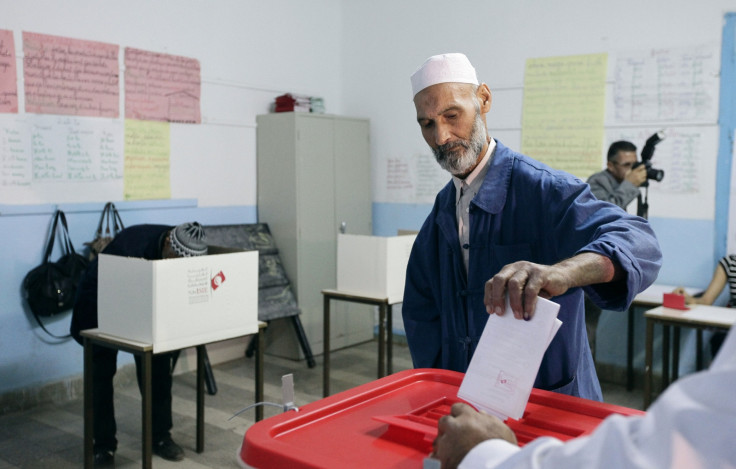Tunisia's Parliamentary Election: Secular Party Nidaa Tounes 'in Narrow Lead'

Tunisian secular party Nidaa Tounes has reportedly taken the lead in the historic parliamentary election in a two-horse race with Islamist party Ennahda, according to a preliminary ballot count.
If confirmed, the 80 seats in the 217-strong parliament against 67 could grant Nidaa Tounes (Call of Tunisia) a narrow majority, with Tunisia's president Mohamed Marzouki expecting to ask Beji Caid Essebsi, leader of Nidaa Tounes, to form a new government.
However, with no party expected to win outright, Nidaa Tounes will likely be forced to form a national unity government or pursue a secular coalition with smaller parties. Essebsi was parliament speaker under Zine El Abidine Ben Ali, the autocrat who was ousted in 2011 in the first Arab Spring revolt of the Middle East, but he has since tried to reinvent himself.
Ennahda, which has strong ties to Egypt's Muslim Brotherhood party, has been tainted somewhat by its relatively poor economic legacy while it governed the country from October 2011 until January 2014.
Tunisia has often been cited as the only success of the Arab revolts that swept the region in 2011. With a new constitution and free elections, it looks like experts have reason to call Tunisia an island of liberty amid the chaos.
US President Barack Obama called Sunday's election "an important milestone in Tunisia's historic political transition".
However Tunisia has also constantly fed Isis (Islamic State) with foreign fighters, becoming one of the most important source for militants.
Tunisian officials said that at least 2,400 Tunisians have travelled to Syria and Iraq to join Islamic State and thousands more were stopped by authorities in their attempt to go to the war zone. Young people who are still jobless and are oppressed by the authorities are lured into the self-styled caliphate as an true example of fairness and equality, with a higher standard of living.
Ennahda has struggled to contain the radical Salafi fringes within the party after appealing to them in the aftermath of the Tunisian revolution.
Officials said that at least 400 Tunisians have returned from the Middle East. Many of them have been arrested, according to the New York Times.
© Copyright IBTimes 2025. All rights reserved.





















